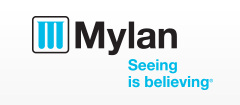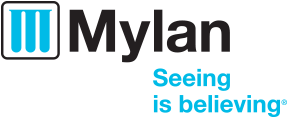From the Family Room to the Board Room

Posted: March 8, 2018
From the Family Room to the Board Room
I can't help but wonder what the world might look like today if all – not just half – of the world’s great minds over the centuries had been recognized and their full potential tapped. I think about illnesses that might now be distant memories, injustices that could have been avoided and great works of art that may have changed the world for the better. For all these reasons and more, I regard this year’s International Women’s Day’s theme, #PressforProgress, as a poignant reminder of the work still ahead of us to achieve gender equality.
My own life has shown me that while capability and work ethic know no gender, opportunity absolutely does. I grew up in a large, traditional Italian family in a small town in West Virginia. The men were entrepreneurial and ran various businesses. The women were the glue – nurturing, feeding and loving family and friends alike.I was taught to have an open heart and an open mind, but also that there were boy jobs and girl jobs. It would have been unheard of, for instance, to expect the boys to cook or clean. Similarly, it would have been unfathomable to think that a woman would run one of our family’s businesses. Looking back, I realize that what you see is all you know and to think differently can be very isolating. There is no question that what I saw growing up had a significant impact on my drive to understand what didn’t make sense. Even as a little girl, it bothered me to think I was predestined for certain types of work based on my gender. Simply being born a boy served as an entitlement.
For years to come, I kept assuming that only big, tightly knit, ethnic families like mine held and acted upon these lopsided gender assumptions. Then one day, soon after I started working at Mylan, 26 years ago, I attended a community event. I was so proud to tell whoever asked that I worked at Mylan (not a family business) until a man responded, “Oh, you must be a new secretary.” While true, I was heartbroken. His statement implied that I couldn't be anything more. At that moment early in my career, I realized that as in my personal life, I was going to have to work harder just for the potential to earn less.
Fortunately, I was curious and confident; I could look beyond what was and dream big. For this I thank my mom and my dad. Both were instrumental in making me feel comfortable in my own skin. Both let me push myself beyond our family’s comfort zone and its gender-based roles. My parent’s example is why I firmly believe it’s not enough for just women to help women. We need our fathers, brothers and sons to respect and empower women as equals if the world is to make any meaningful progress.
I notice the effects of stereotypical thinking every day in the business world. Many are obvious. When I became Mylan’s CEO, for instance, I was asked – by men and women – how I intended to balance being a mom and an executive. Seriously? What newly minted male CEO is ever asked that question? I decided right then that I had two choices. I could be frustrated by stereotypes, or I could #PressforProgress and try to figure out why they exist and how to change them. I chose the latter.
I started by considering my role as a mother. Science confirms my personal experience. Consider this scenario: A middle-school girl takes a math test and does poorly. She immediately blames herself and believes she’s bad at math. A middle-school boy who does poorly immediately decides it’s his teacher’s fault.
Such conclusions speak volumes about our educational system and affect the career paths girls and boys eventually choose. Chances are good, for instance, that teachers and family will reinforce the schoolgirl’s conclusion. In response, she’ll focus on subjects she does well in, English and history perhaps. That pattern will continue into college. She’ll major in social studies. Her reward will be a staff job. In contrast, the schoolboy will go on believing he’s great at everything. His teachers and family will concur. All assume he’ll go to business school and land a line job, the corporate ladder’s true first rung.
Yes, this scenario is oversimplified and stereotypical, but I’m guessing it rings true and illustrates my fundamental point about how assumptions about gender affect the world. Females make up half of its population. If capability and work ethic know no gender, you’d expect to see far more women in everything. That we don’t suggests a terrible squandering of opportunity. That we could suggests the need for more concerted action to rectify a very solvable problem.
The key is to capture the imagination of every mind, male and female, at every age, though the younger the better. For we know confidence is gained or lost (disproportionately so for girls) at an early age, and we know that curiosity coaxes youngsters from their comfort zones. That’s why I believe we should help children figure out how to navigate against society’s norms and understand the paths to leadership positions. It’s the best way to break the traditions that bind.
Capturing imaginations is why I love challenging the status quo. In fact, anyone who knows me – family members, friends, coworkers and others – will tell you that I constantly challenge them, maybe to a fault. But I simply want to help them learn – as I have learned – that our only limitations are the ones we place upon ourselves.
My journey so far has been very rewarding personally and professionally. It hasn’t come easy or without its share of disappointment. But I always remember that if you don't want to be criticized, don't do, say or be anything!
My “ask” of everyone reading this post is to look at those around you – particularly girls and women – with a fresh perspective. Is there something you can do to help them “figure it out” and reach their true potential? After all, no life’s outcome deserves to be determined by the gender lottery.





